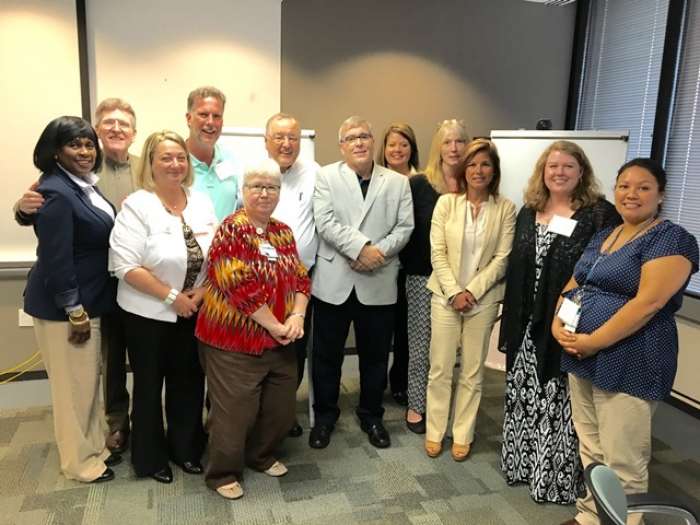St. Luke's Health joins CommonSpirit.org soon! Enjoy a seamless, patient-centered digital experience. Learn more
Medical decisions are often defined by ethics. Should I end life support? Is this treatment helping or harming my loved one? Is this what he or she would have wanted? Many times patients and their families just need someone to listen to them during these difficult moments. Or they need the wisdom of faith, family and community in their difficult decisions.
The recently revitalized Medical Ethics Committee at St. Luke’s Health-Memorial serves as a resource to educate, clarify and resolve ethical issues, and to foster an ethical culture throughout the Memorial organization and the community.
Made up of physicians, nurses, social workers, administrators, clergy and representatives of the community across East Texas, the group recently met to revitalize the program by establishing a charter and bylaws. This was a year-long project for 15 Ethics Associates who just finished a training program sponsored by Catholic Health Initiatives in Houston, under the direction of Carl Middleton, D. Min., CHI Senior VP of Ethics and Theology.

“A robust ethics ministry is a necessary component of our mission as a faith-based system. It is vital to our efforts to provide healing and comfort for our patients and their families, as well as our own employees,” said Jay Gilchrist, St. Luke’s Health-Memorial Vice President of Mission Integration.
An ethics consultation may help whenever a patient, a family, or the health care team has an unresolved ethical concern by offering recommendations to aid in the decision-making process. The Medical Ethics Committee seeks to follow the patient’s wishes and/or written directive whenever possible.
“If these things are not clear, we rely on the advice of the Ethical and Religious Directives for Catholic Health Care Services. We gather a ‘wisdom circle’ of family, clinicians, Ethics Associates and our CHI Medical Ethics leadership, to reach a consensus about the best way forward,” said Gilchrist.
A few examples of ethical dilemmas in health care include:
“We are here to facilitate dialogue; we aren’t here to make the decisions because that authority rests with the patients and their family,” Gilchrist said. “We want to provide clarification for ethical issues that arise in health care, as we are guided by the Gospel and the healing ministry of the Church.”
Ethics consultations are free of charge and may be requested by any patient or family member, as well as hospital staff. For more information, or if an ethics consultation is needed, call Gilchrist at 639-7340.
Publish date:
Monday, July 11, 2016Looking for a doctor? Perform a quick search by name or browse by specialty.